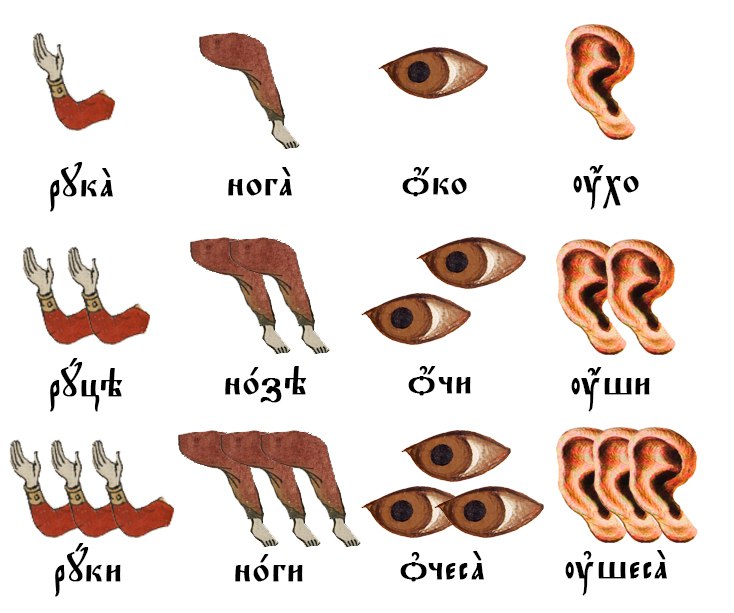
There is a small list of "strange" Russian words, in which the nominative singular is very different from the forms of other cases. Questions immediately arise: Where is the unification? Why is it so inconvenient? Where did this come from?
If you look at some nouns that exist in modern Russian, you can see a tendency: (1) mother - mothers, daughter - daughters; (2) body - bodies, heaven - heaven, miracle - miracles, name - names, time - times, tribe - tribes, seed - seeds.
, , , X-XI , .
(1) *-r. — μήτηρ θύγατηρ, -r. , . mótė, mâte, māter, māthir, - móðer.
*- ? , , ().
, ( ) , , .. . , , , .
, - * * , , .
(2) *-s *-n , .
“” “”.
— , ѧ — . . , , , , (), (ѧ /’/). (, , ), , « » Ѧѧ, // .
So it turns out that what seemed to have no logic can be explained with the help of an etymological vocabulary and methods of comparative historical linguistics. Comparing words of different languages that have a common historical root (the so-called cognates), we can trace the formation of the modern language, which gives us a better understanding of how it works and why. Well, then it's funny.